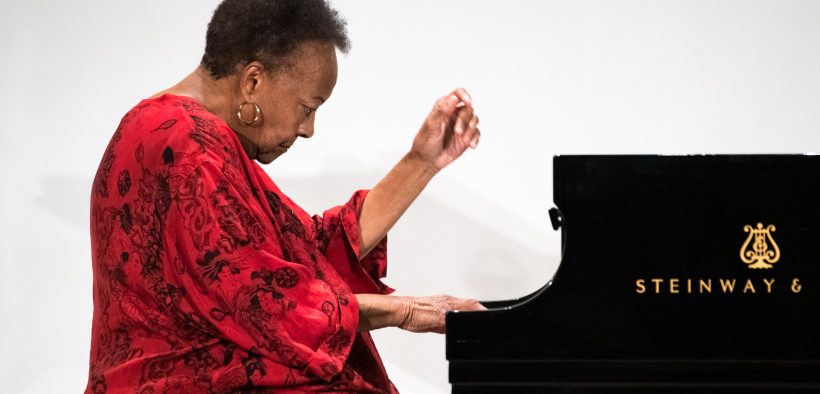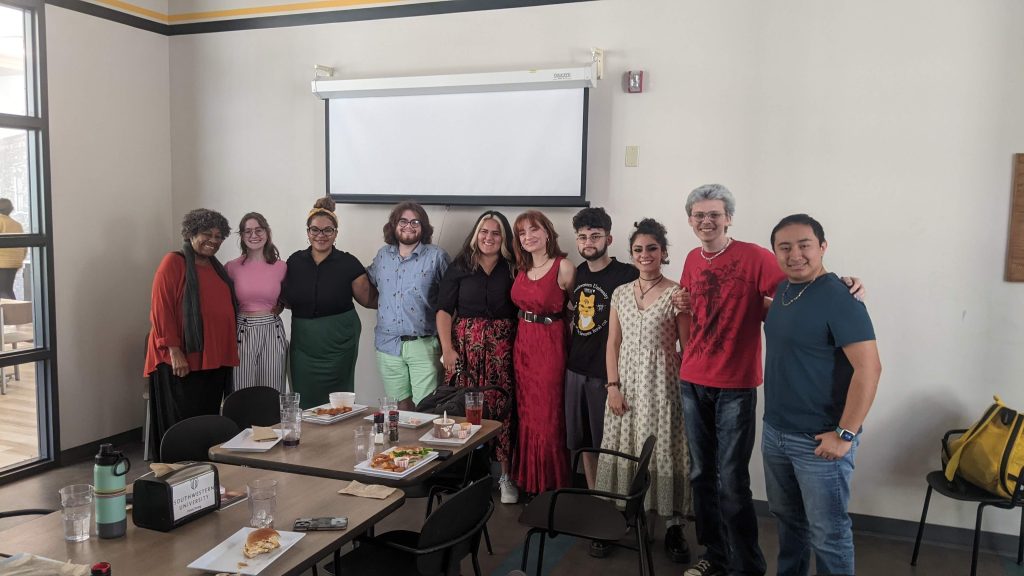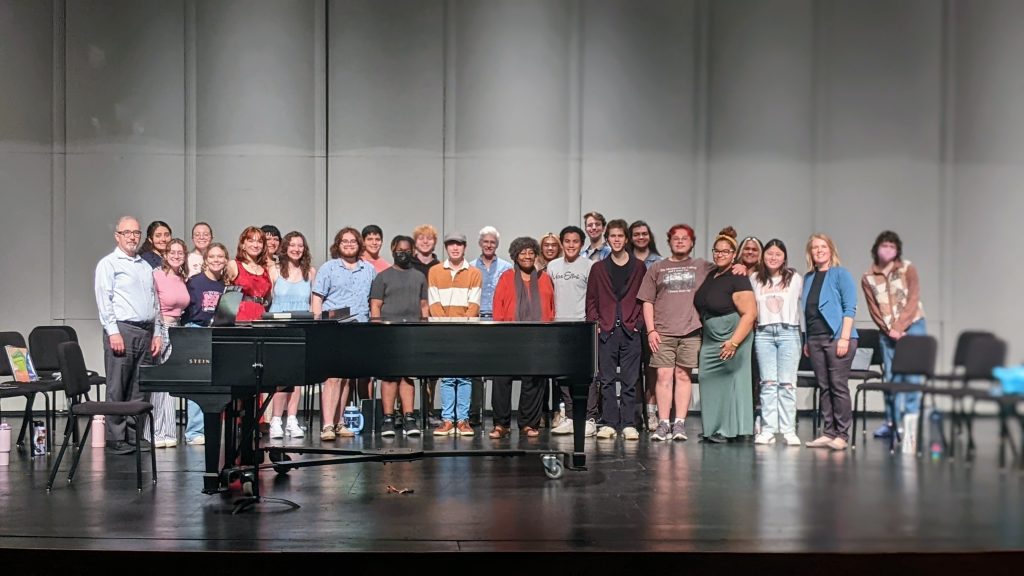Althea Waites and Her Music Mesmerize Southwestern University
Share

Althea Waites, an internationally acclaimed pianist, was invited by Dr. Michael Cooper to visit and play at Southwestern over the weekend of February 24. Dr. Cooper coordinated a lunch to be held with select music students on Friday, which allowed for a free and open discussion with the pianist. On Saturday, a talk took place, followed by her grand performance at 4 p.m. in Alma Thomas Theater.
Waites, 85, has lived an eventful life filled with music, education, and activism. She taught at several universities and played shows in the United States, Europe, Asia, and South Africa. Born and raised in Louisiana, Waites draws inspiration from her childhood in the Deep South. She studied at Xavier University in Louisiana and earned her Master of Music in piano at Yale, which led to her successful piano career.
Music students, including those in The Megaphone, had the opportunity to join in on the student lunch to discuss her life and ask her questions. She detailed her passion for activism, advising students to “be involved, be connected, and speak up.” She shared how her anger about the genocide currently happening in Palestine was fuel to her playing. Waites talked about her days as a college student.
“We marched. I did a lot of that when I went to Yale. See, at that time it was Vietnam.” Her passion for activism has and continues to inspire her playing and devotion to music. She further shared how she loves to play music recently released because she thinks it is essential for the arts and its audiences. She told the students, “I don’t wanna be on a platform that only programs a certain type of music.”

During lunch, she discussed what she would be playing the following day, turning it into a discussion. Included in the repertoire were Wolfgang Amadeus Mozart, Margaret Bonds, and Samuel Coleridge-Taylor. The discussion then opened up space to address the concept of inclusivity when programming a diverse concert. Waites said that she did not want to cut out “classical” composers such as Mozart and Bach when playing, but rather, she wants to include underrepresented artists, such as Margaret Bonds and Florence Price. She told students: “Inclusion—if that’s what you want, then do it.” She calls for equity in representation, and therefore purposely programmed this weekend’s concert with Wolfgang Amadeus Mozart and Franz Schubert, bookending artists Margaret Bonds, Samuel Coleridge-Taylor, and Tania Leon, who she claimed were the core of her program.

At her concert, she opened with “Fantasy and Fugue in C major, K.394” by Mozart. She informed the audience that this particular piece is not often played, and that the piece is “special” to her.
Following the fugue, Waites played two pieces by Margaret Bonds, titled “Flamenco” and “Fugal Dance.” She spent a fair amount of time discussing these two pieces, as they were brought to her by Southwestern’s Dr. Michael Cooper. “Flamenco” is not yet published, and she very recently played the world premiere of “Fugal Dance” in January.
After the two Bonds pieces, Waites played the two movements of the Three Fours, Op.71 (Waltz Suite), “Andante” in A minor and “Allegro assai” in C minor by Samuel Coleridge-Taylor. She informed the audience that this is unique for a waltz because they typically are written in triple meter.
Between the Coleridge-Taylor pieces and the upcoming piece, Waites shared words of inspiration with the audience. “Without you, we have no one to perform for. This is what makes things happen; we need you—we need the audience.” Waites’ passion for and success in the arts allows her to share her opinions. She further told the audience, “There’s a lot of things happening in the world right now. Music really has a healing power. [Musicians] want to do it in order to share what’s in that music with you.”
On that inspirational note, Waites continued with a piece titled “Momentum” by Tania Leon. The piece, written in 1986, has many ragtime rhythms and jazz influence. Waites excitedly shared that the piece does not have a written time signature, and is subject to artistic interpretation. It employs extended techniques on the piano, such as “strong plucking”.
She closed the program with Franz Schubert’s Sonata in A minor, D.784, playing the three movements “Allegro giusto,” “Andante,” and “Allegro vivace.” Waites called this piece a “terror to perform,” explaining how the octaves written on the score are more challenging to play in the present, contrasting with Schubert’s time and different piano mechanics. Nevertheless, it was enjoyable to watch her as her swift, intentional movements on the keys called for roaring applause.
As soon as she concluded the final piece, the audience gave her a standing ovation, and she gratefully bowed and exited the stage. When the audience did not cease clapping, she came out for a final bow and was presented with multiple bouquets by students.
Althea Waites’ visit to Southwestern was a special and unique experience, and her passion and love for the fine arts and activism seemed to inspire everyone who met her.

Dear Zoe,
Thank you for writing this excellent article about my visit to Southwestern University. It was a joy and great pleasure to meet students and have very stimulating conversations with them, and I really appreciate having some written comments about my residency. I look forward to a return visit in the not-too-distant future!